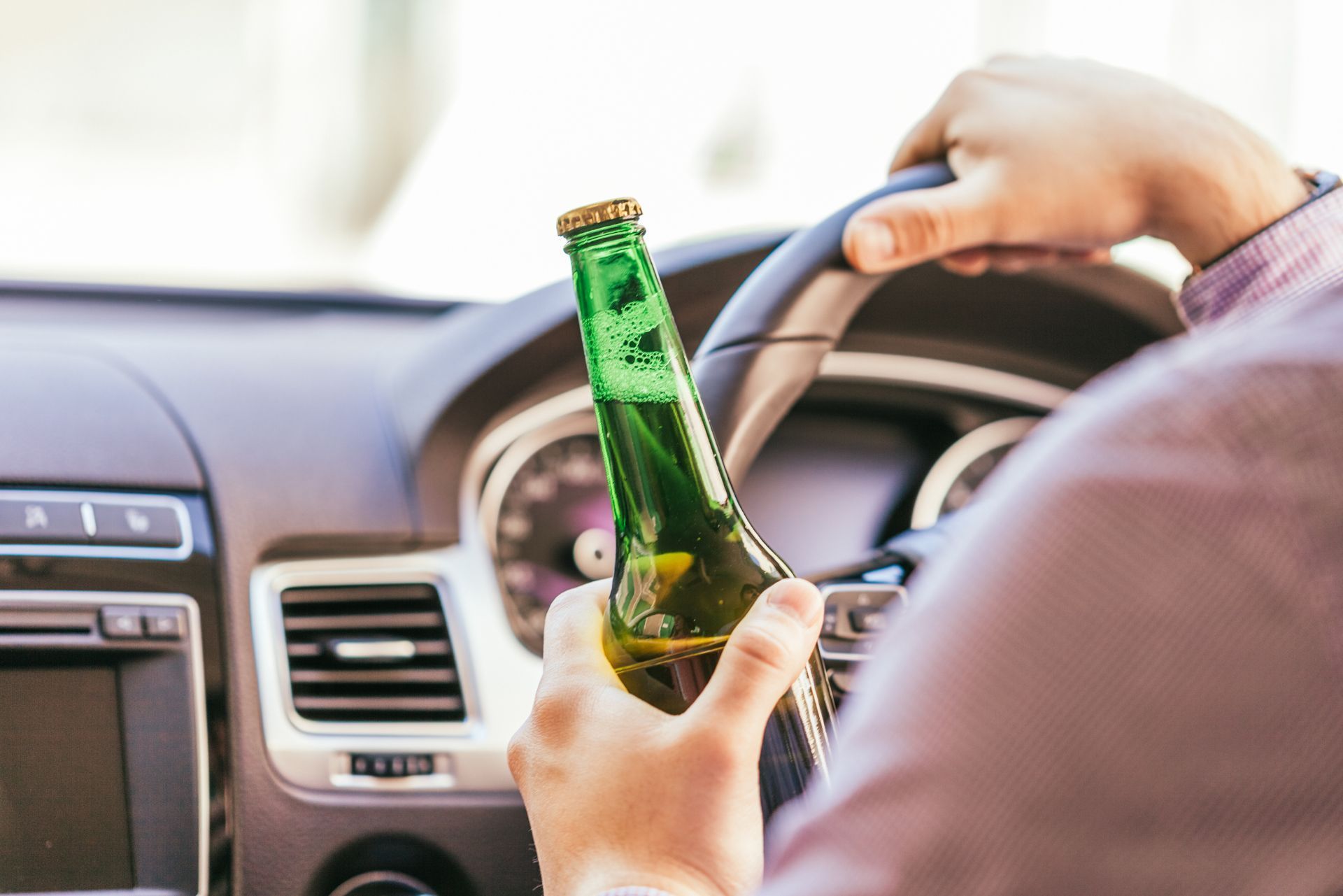
Driving under the influence (DUI) is a serious offense that can have lasting consequences, not just legally but also financially. In Gainesville, Florida, individuals charged with a DUI may find themselves facing increased insurance premiums or even difficulty obtaining insurance altogether. This article aims to provide a comprehensive overview of DUI insurance in Gainesville, covering everything from the implications of a DUI charge to tips for finding the right insurance policy.
Understanding DUI Charges in Florida
Before delving into the specifics of DUI insurance, it is essential to understand what constitutes a DUI in Florida. A DUI charge can arise from operating a vehicle while impaired by alcohol or drugs, with a blood alcohol concentration (BAC) of 0.08% or higher. However, even lower BAC levels can lead to a DUI charge if the driver is deemed impaired. Florida law also recognizes that impairment can result from the use of prescription medications or illegal drugs, further complicating the landscape of DUI charges.
Additionally, law enforcement officers in Florida are trained to look for various signs of impairment, such as erratic driving behavior, slurred speech, or the smell of alcohol. This means that even if a driver is below the legal BAC limit, they can still be arrested and charged with a DUI if the officer believes their ability to drive is compromised.
Legal Consequences of a DUI
In Florida, a DUI conviction can result in severe penalties, including fines, license suspension, and even jail time. First-time offenders may face fines ranging from $500 to $2,000, while repeat offenders can incur much higher penalties. Additionally, a DUI conviction will result in a mandatory license suspension, which can last from six months to several years, depending on the severity of the offense. For example, a second DUI offense within five years can lead to a minimum of five years of license suspension, highlighting the state's strict stance on repeat offenses.
Moreover, the legal repercussions extend beyond immediate penalties. A DUI conviction remains on an individual’s driving record for 75 years, which can impact future employment opportunities and insurance rates. Employers in certain fields, particularly those involving driving or operating heavy machinery, may view a DUI conviction as a red flag, potentially hindering job prospects. Furthermore, individuals may also face mandatory participation in DUI education programs or community service, adding to the overall burden of a DUI conviction.
Impact on Insurance Rates
Once a DUI charge is on record, the consequences extend to the realm of auto insurance. Insurance companies view DUI offenders as high-risk drivers, leading to significant increases in premiums. In many cases, individuals may find themselves unable to secure coverage from their current insurer, forcing them to seek out specialized DUI insurance. This type of insurance often comes with higher premiums and limited coverage options, making it essential for individuals to shop around and compare policies to find the best fit for their needs.
It’s important to note that the increase in insurance rates can last for several years, making it crucial for individuals to understand their options and how to manage their insurance needs post-DUI. Some insurers may offer programs that allow drivers to reduce their premiums over time by maintaining a clean driving record, while others may require the installation of an ignition interlock device as a condition of coverage. Understanding these requirements and actively managing one's driving habits can help mitigate the long-term financial impact of a DUI charge.

What is DUI Insurance?
DUI insurance is a term used to describe the type of auto insurance required for individuals who have been convicted of a DUI. This insurance is often more expensive than standard coverage due to the increased risk associated with DUI offenders. However, it is essential for legally driving in Florida after a DUI conviction. The heightened cost reflects the insurer's assessment of risk, as drivers with a DUI on their record are statistically more likely to file claims. This reality can make the process of obtaining coverage feel overwhelming, but understanding the nuances of DUI insurance can help individuals make informed decisions.
Types of Coverage Required
In Florida, individuals with a DUI conviction may be required to obtain an SR-22 form, which is a certificate of financial responsibility. This form is not an insurance policy itself but rather a document that proves the driver has the minimum required insurance coverage. The SR-22 must be filed with the Florida Department of Highway Safety and Motor Vehicles (DHSMV) and is typically required for three years following a DUI conviction. During this period, maintaining continuous coverage is crucial, as any lapse could lead to severe penalties, including license suspension.
In addition to the SR-22, DUI insurance policies may include various types of coverage, such as liability, collision, and comprehensive coverage. Liability coverage is mandatory in Florida and protects against damages to other vehicles or injuries sustained by others in an accident. Collision coverage helps pay for damages to the insured vehicle, while comprehensive coverage protects against non-collision-related incidents, such as theft or natural disasters. It's important for drivers to assess their individual needs and consider additional options, such as uninsured motorist coverage, which can provide extra protection in the event of an accident with a driver who lacks insurance.
Finding DUI Insurance in Gainesville
Finding the right DUI insurance in Gainesville can be a daunting task, especially given the potential for increased premiums and limited options. However, there are several strategies that individuals can employ to secure the best coverage at an affordable rate. One effective approach is to take advantage of available discounts, such as those for completing a defensive driving course or maintaining a clean driving record after the DUI incident. Many insurers offer incentives for drivers who demonstrate a commitment to safer driving practices, which can help offset some of the costs associated with DUI insurance.
First, it is advisable to shop around and compare quotes from multiple insurance providers. Different companies have varying policies and pricing structures, so obtaining multiple quotes can help identify the most competitive rates. Additionally, working with an insurance agent who specializes in high-risk insurance can provide valuable insights and assistance in navigating the process. These agents often have access to niche markets that cater specifically to DUI offenders, which can lead to better coverage options and lower premiums. Furthermore, it’s wise to read customer reviews and check the financial stability of the insurance company to ensure that they can meet their obligations in the event of a claim.
Factors Affecting DUI Insurance Rates
Several factors influence the cost of DUI insurance in Gainesville. Understanding these factors can help individuals make informed decisions when selecting a policy.
Severity of the Offense
The severity of the DUI offense plays a significant role in determining insurance rates. For example, a first-time offense may result in lower premiums compared to repeat offenses or DUI charges involving accidents or injuries. Insurance companies assess the risk associated with each individual, and a more severe offense typically leads to higher rates. Furthermore, the legal consequences of the DUI can also impact insurance costs; individuals facing harsher penalties, such as mandatory alcohol education programs or longer license suspensions, may find themselves paying significantly more for coverage as insurers view them as higher-risk clients.
Driving History
In addition to the DUI charge, an individual’s overall driving history will be considered when calculating insurance premiums. A history of traffic violations, accidents, or claims can further increase rates. Conversely, a clean driving record prior to the DUI may help mitigate some of the financial impact. Insurers often look at the last three to five years of driving history, so even minor infractions can accumulate and affect overall rates. Those with a history of safe driving may be able to negotiate better terms or discounts, especially if they can demonstrate a commitment to improving their driving habits post-DUI.
Location and Vehicle Type
The location where an individual resides and the type of vehicle they drive can also affect insurance rates. Urban areas, like Gainesville, may have higher rates due to increased traffic and accident likelihood. Additionally, the type of vehicle can influence premiums; high-performance or luxury vehicles typically attract higher insurance costs. Insurers often categorize vehicles based on their safety ratings, repair costs, and theft rates, which can all contribute to the final premium. For instance, a compact car with excellent safety ratings may result in lower premiums compared to a sports car with a history of theft, making it crucial for individuals to consider both their driving environment and vehicle choice when seeking insurance after a DUI incident.
Tips for Reducing DUI Insurance Costs
While DUI insurance can be expensive, there are several strategies individuals can employ to help reduce their insurance costs. Implementing these tips can lead to significant savings over time.
Maintain a Clean Driving Record
After a DUI conviction, it is crucial to focus on maintaining a clean driving record. Avoiding additional traffic violations and accidents can demonstrate to insurance companies that the individual is a responsible driver, which may lead to lower premiums over time.
Additionally, many insurers offer discounts for safe driving practices, so it’s beneficial to take advantage of any available programs that reward good behavior on the road. Participating in regular vehicle maintenance and keeping up with safety checks can also contribute to a safer driving experience, further solidifying one's commitment to responsible driving.
Consider a Higher Deductible
Choosing a higher deductible can also help lower insurance premiums. While this means that the individual will pay more out-of-pocket in the event of a claim, it can lead to significant savings on monthly premiums. It’s essential to weigh the pros and cons of this option and ensure that the deductible is manageable in case of an accident.
Moreover, individuals should assess their financial situation and driving habits before opting for a higher deductible. If they rarely find themselves in situations that could lead to claims, this strategy may be particularly beneficial. However, it's wise to have an emergency fund set aside to cover the deductible if an unexpected incident occurs.
Take Advantage of Discounts
Many insurance companies offer various discounts that can help reduce costs. These may include discounts for bundling multiple policies, completing a defensive driving course, or being a member of certain organizations. It’s worth inquiring about available discounts when obtaining quotes to ensure the best possible rate.
Additionally, some insurers provide incentives for maintaining continuous coverage, which can be particularly advantageous for those who have held a policy without lapses. Engaging in community programs or volunteering can also lead to potential discounts, as some insurers partner with local organizations to promote safe driving and community involvement. By exploring all available avenues, individuals can maximize their savings and find a policy that fits their budget and needs.

Long-Term Considerations After a DUI
Recovering from a DUI conviction involves more than just securing insurance; it requires a commitment to responsible driving and making positive lifestyle changes. Understanding the long-term implications of a DUI can help individuals navigate the challenges ahead.
Rebuilding Trust with Insurers
Over time, individuals can work towards rebuilding trust with insurance providers. By maintaining a clean driving record and demonstrating responsible behavior, it is possible to see a gradual decrease in insurance premiums. Many insurers will review rates periodically, and a history of safe driving can lead to more favorable terms. Additionally, some insurance companies may offer discounts for completing defensive driving courses or other educational programs, which can further enhance an individual's profile as a responsible driver. This proactive approach not only helps in reducing costs but also reinforces the commitment to safe driving practices.
Exploring Alternative Insurance Options
As time passes, individuals may also explore alternative insurance options. Some companies specialize in high-risk insurance and may offer better rates as the individual’s record improves. Additionally, after the SR-22 requirement is lifted, individuals may have more flexibility in choosing insurance providers. It's essential to compare multiple quotes and consider factors such as coverage limits, customer service ratings, and claims processes. Engaging with insurance brokers who understand the nuances of high-risk policies can also provide valuable insights and help individuals find the best deals tailored to their specific situations.
Impact on Employment Opportunities
A DUI conviction can also have significant repercussions on employment opportunities, particularly in fields that require driving or operating heavy machinery. Many employers conduct background checks, and a DUI on one’s record may raise red flags during the hiring process. However, individuals can take proactive steps to mitigate these effects by focusing on personal development and skill enhancement. Engaging in community service, attending rehabilitation programs, or pursuing further education can demonstrate a commitment to change and personal growth, making a candidate more appealing to potential employers.
Social and Emotional Effects
Beyond the practical implications, a DUI can also impact an individual's social life and emotional well-being. The stigma associated with a DUI can lead to feelings of shame or isolation, which may affect relationships with family and friends. It’s important for individuals to seek support from loved ones or professional counseling to navigate these emotional challenges. Building a strong support network can provide encouragement and accountability, helping individuals to stay on the path of recovery and responsible living. Engaging in community activities or support groups can also foster connections with others who have faced similar challenges, promoting a sense of belonging and understanding.
Conclusion
Securing DUI insurance in Gainesville, FL, can be a challenging process, but understanding the implications of a DUI charge and the available options can make it more manageable. By being proactive in seeking coverage, maintaining a clean driving record, and exploring potential discounts, individuals can navigate the complexities of DUI insurance and work towards a more secure financial future.
Ultimately, the journey after a DUI conviction is about more than just insurance; it’s about making responsible choices and committing to safer driving practices. With time and diligence, individuals can overcome the challenges associated with a DUI and move forward positively.
Contact Us


